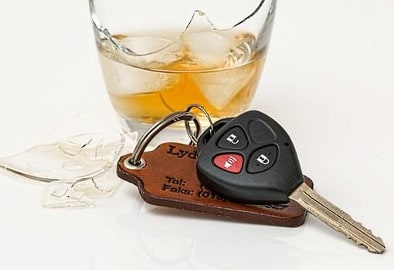-
Location: New Jersey DWI Lawyer 609 Main St. Toms River, NJ - 08753
-
Phone:
201-214-4444
732-282-1394 (1DWI)
The following discussion should be understood only as a general overview. This is not legal advice. Consult with a licensed attorney for advice as to a specific legal matter.
There are common questions associated with driving under the influence (DUI) in New Jersey. This article will look at frequently asked questions in respect of driving under the influence, driving while intoxicated or driving with a BAC of .08% or higher.
How can the police find out whether a driver is under the influence or intoxicated?
Generally, police use three methods of supporting an allegation that a driver has had too much to drink or that he or she is under the influence of drugs.
Those methods are:
1. Observation – when a police officer pulls you over, it is normally alleged that he or she has noticed that your driving was erratic or that you were swerving, speeding, failing to stop or even driving too slowly. While you may have a good explanation for your driving, an officer is unlikely to concur with this if he or she claims a smell of alcohol on your breath or notices slurred speech or unsteady movements by the driver.
2. Sobriety tests – if an officer suspects that you are under the influence he or she will probably ask you to get out of your car and perform a series of balance and speech tests. Such tests may include standing on one leg, walking a straight line heel-to-toe or reciting a series of letters or numbers. Further, the arresting and charging officer will ask to look closely at your eyes, checking for pupil enlargement and nystagmus, which is often alleged as evidence of intoxication. From such tests the officer will almost certainly seek to justify charging a driver with DUI*.
3. Blood alcohol level – in order to establish the level of alcohol in a driver’s blood: this is done by purportedly measuring the amount of alcohol in the breath or blood. Such a measurement can be taken directly by drawing a sample of your blood, or by calculating the blood alcohol content through the application of a mathematical formula based on the amount of alcohol in your breath or urine. If your test result is at or above .08% blood alcohol concentration, you are to be prosecuted for violation of the law.
Do I have to take a breath test, blood test or urine test if I am stopped for DUI or DWI?
The law in New Jersey says that if you are operating a vehicle you have given consent to submit to a chemical test for the purposes of determining the amount of alcohol in your blood. This is referred to as implied consent. As a consequence of your refusal to take a chemical test following a DUI or DWI stop, the result can be a suspension of your driver’s license, for the first offence, for a 7 month period. For a second offense suspension is for two years and for a third offense, ten years.
If you have been charged for a DUI in NJ seek out a law firm of a renowned professional experienced in handling drunk driving matters and with a track record of success.
*It is the opinion of the author that in nearly every case a driver should politely decline to answer any questions about prior activities, especially alcohol consumption, and that one should never perform so-called field sobriety tests. Just say “No”, but politely. Submit to arrest and do breath testing only.


